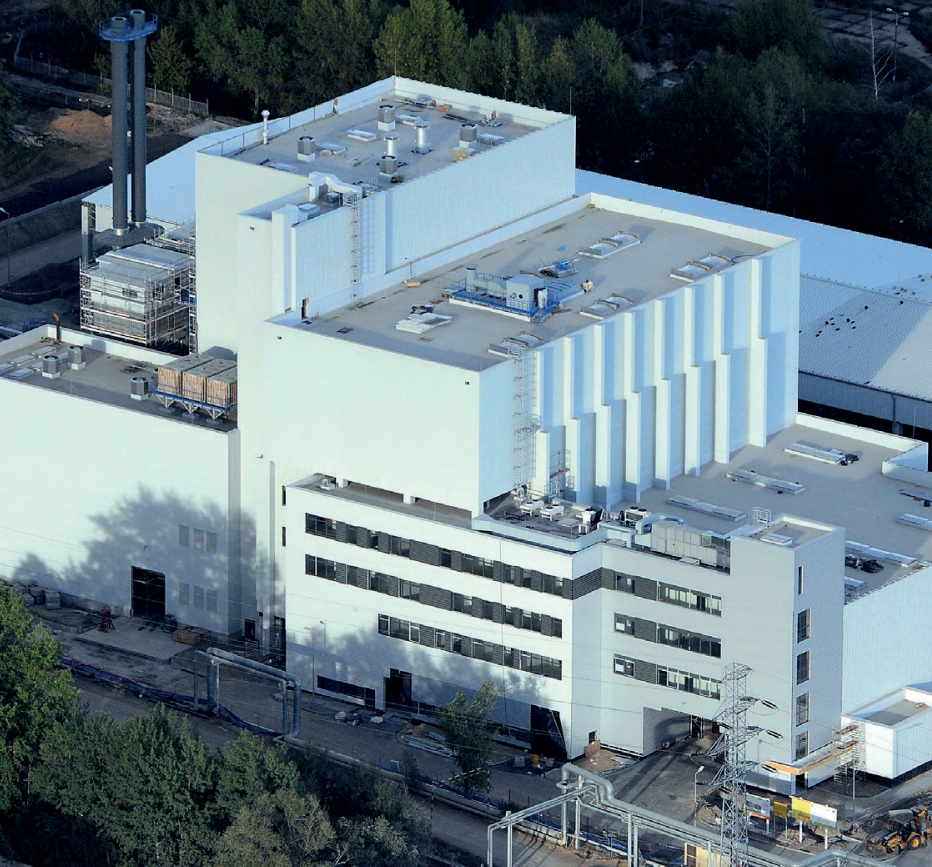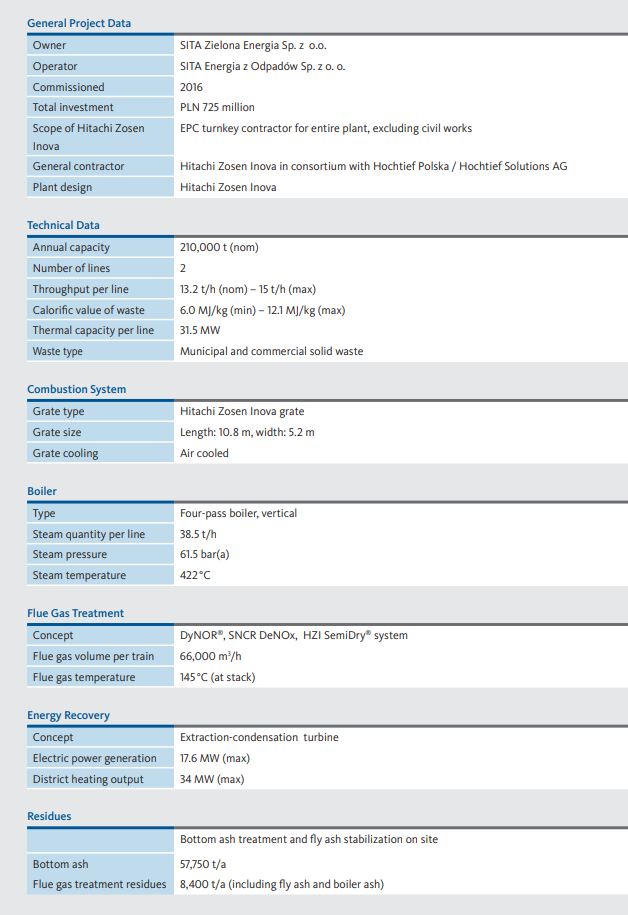Poznań / Poland
Poznań / Poland
The First Waste-to-Energy Plant Built by Kanadevia Inova in Poland

The new Waste to Energy plant in Poznań underscores Kanadevia Inova’s success as experienced and reliable technology partner for public-private partnerships, and its leading position in the production of thermal energy from municipal solid waste. The plant is designed to convert about 210,000 tonnes of waste per year into electricity and district heat.
Reliability under Public-Private-Partnership Initiatives
In April 2013, SITA Zielona Energia, a joint venture between SITA Polska and Maguerite Fund, was chosen by the city of Poznań to carry out the design, construction, financing, and operation of the plant over a period of 25 years. On the same date, SITA Zielona Energia entrusted the EPC contractor role to Kanadevia Inova as part of a consortium. Under the leadership of Kanadevia Inova, consortium partner Hochtief became responsible for the civil works design and for the construction of the plant. In its role as nominated contractor, the consortium fully supported the client until the common contract award in this first public-private-partnership project in the waste sector in Poland.
Cutting-Edge Technology
The plant is located in an industrial zone in the vicinity of the city of Poznań. The process technology of the plant features the Inova grate, with the latest innovations in grate combustion for improved combustion control, and DyNOR®, a proprietary SNCR-based system that makes it possible to reduce nitrogen dioxide levels to half the current EU limit with minimal ammonia slip.
Electricity and Heat for the Region
The thermal energy released by the combustion process is recovered in a four-pass boiler producing superheated steam. The carefully selected steam parameters enhance both energy efficiency and reliability of the boiler. With a thermal input from waste of two times 31.5 MW, net electrical energy of up to 15 MW and district heat of up to 34 MW can be exported. The two-line plant is designed to convert about 216,000 tonnes of waste per year into electricity and district heat for the local grid. The new plant will thus make a contribution to the local supply of energy.
Effective Flue Gas Treatment
The proven and simple Kanadevia Inova SemiDry® System allows for effective and safe removal of hazardous substances, such as HCl, SO2, dioxins, and furans, as well as heavy metals, and keeps the plant in full compliance with the stringent flue gas emission limits. The hazardous substances are concentrated in the solid flue gas treatment residues, which amount to about 4% of the waste input. The flue gas treatment residues are stabilized on site for safe disposal.
Integrated Thermal and Material Recycling
Adjacent to the Waste to Energy plant is a treatment facility that handles the bottom ash. Various fractions of aggregates as well as most of ferrous and non-ferrous materials in the bottom ash are separated for re-use.

